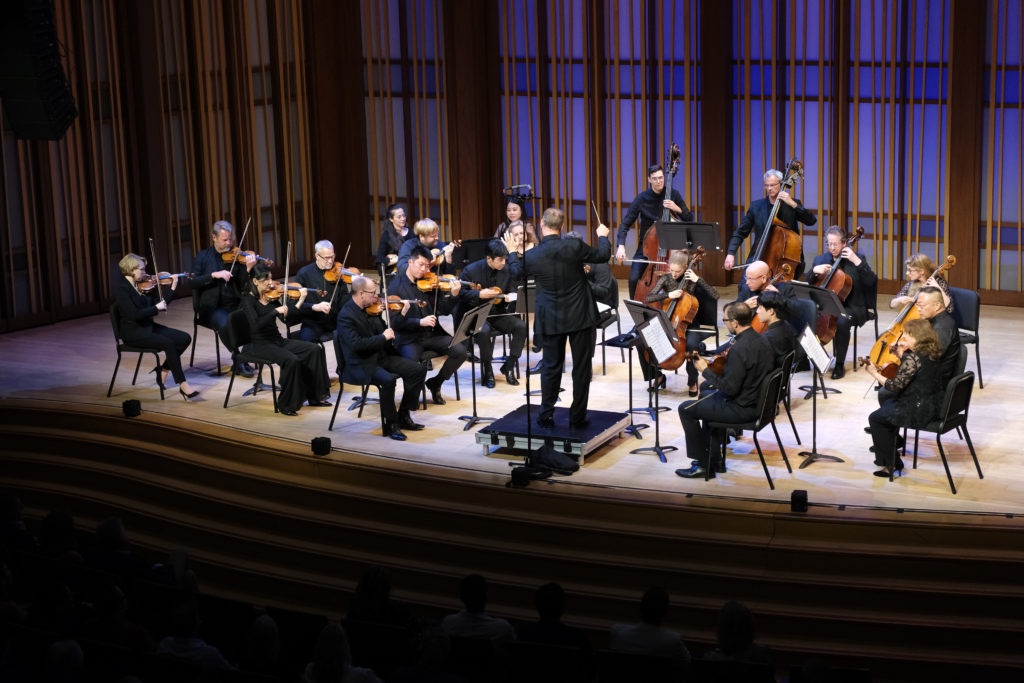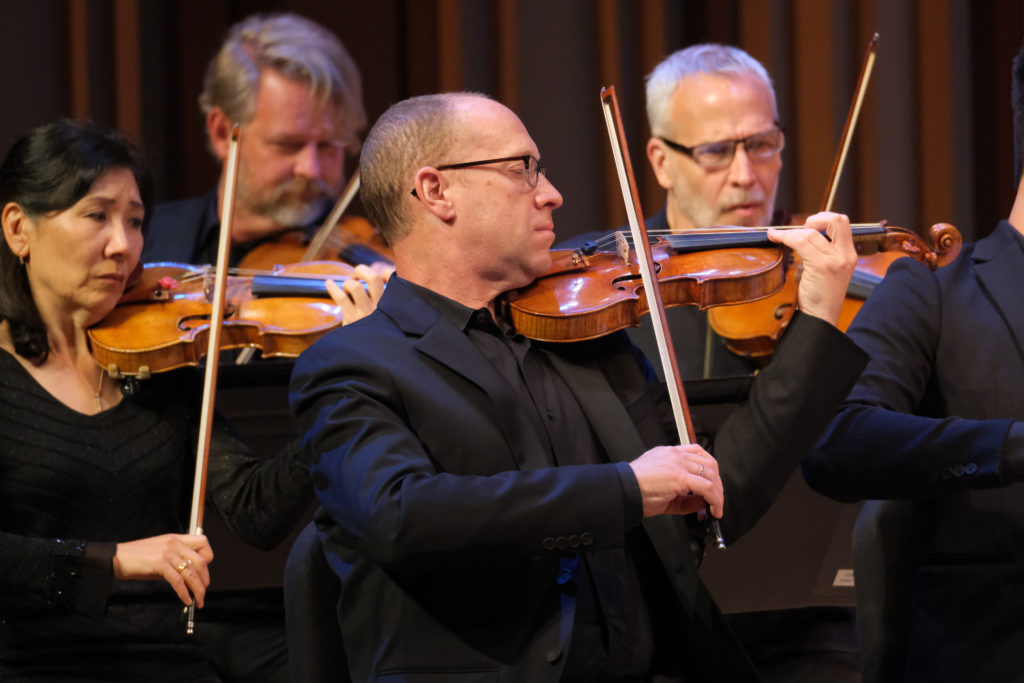Mainly Mozart Soars at The Conrad with a Program of Britten and Tchaikovsky
Leading some 22 elite string players assembled on the stage of La Jolla’s Conrad Prebys Performing Arts Center, Mainly Mozart Music Director Michael Francis offered an ideal program for that splendid hall: Tchaikovsky’s beloved Serenade for Strings, Op. 48, and Benjamin Britten’s precocious Variations on a Theme of Frank Bridge, Op. 10. As I left The Conrad Tuesday evening, the refrain from Gershwins’ classic “I Got Rhythm” immediately came to mind: “Who could ask for anything more?”
In Francis’ introduction to the Britten work from The Conrad stage, he noted that on his first appearance with Mainly Mozart ten years ago he included Variations on a Theme of Frank Bridge, and his keen appreciation of the work suffused the orchestra’s sleek, adroit performance of the 11-movement Suite. He warned the audience not to be taken in by the benign titles of the individual movements, e.g. “Romance,” “Italian Aria,” and “Viennese Waltz,” but to listen for their darker undercurrents and dissonances that reflect Europe’s political and social turmoil at the time when this 1937 work was written.
Francis demanded muscle for the opening movement’s edgy fanfare and anxious, urgent propulsion in the ensuing “March,” which the strings amply provided. Britten’s “Romance” movement is a breezy waltz with a soaring theme that the violins delivered with an astonishing purity of line that only results when every musician is playing precisely in tune. I had almost forgotten about this radiant but rare musical phenomenon.From our historical vantage point, we can savor Britten’s ironic satire in his blatantly over-ornamented “Italian Aria,” inasmuch as several of his operas–yet to be written in 1937, of course–have become standard repertory in opera houses around the globe. In the rich, velvet sonority of Britten’s “Vienna Waltz” movement I heard echoes of Ravel’s La Valse, and Mainly Mozart’s viola section gave a most opulent account of the composer’s sophisticated waltz themes. Powerful, ominous bass themes from the cellos and basses would not allow the audience to avoid the eerie warning of Britten’s “Funeral March,” although Michael Francis’ exultant character of the “Fugue and Finale,” as well as the movement’s rollicking pace brought the audience at The Conrad immediately and enthusiastically to their feet.
A favorite offering of La Jolla SummerFest closing concerts (2023, 2015), Tchaikovsky’s Serenade for Strings is also regularly encountered at the San Diego Symphony. But if its musical contours are comfortably familiar, Tuesday’s performance of the Serenade proved astonishing for the Mainly Mozart strings’ vibrant, resplendent interpretation, a chamber orchestra with the sonic breath of a full symphony. Francis’ bracing, dramatic tempos might have courted danger with a lesser band, but this orchestra of concertmasters and principal string players from orchestras across the country carried out his command with breathtaking prowess. From the effulgent opening movement’s fanfare to the urgent yet inviting “Waltz” movement to the angelic pizzicatos of the “Elegy” and the exhilaration of the “Finale,” this was a definitive Tchaikovsky Serenade.This concert was presented by Mainly Mozart as part of its All-Star Orchestra Festival on Tuesday, June 25, 2024, at La Jolla’s Conrad Prebys Performing Arts Center.

Ken Herman, a classically trained pianist and organist, has covered music for the San Diego Union, the Los Angeles Times’ San Diego Edition, and for sandiego.com. He has won numerous awards, including first place for Live Performance and Opera Reviews in the 2017, the 2018, and the 2019 Excellence in Journalism Awards competition held by the San Diego Press Club. A Chicago native, he came to San Diego to pursue a graduate degree and stayed.Read more…


